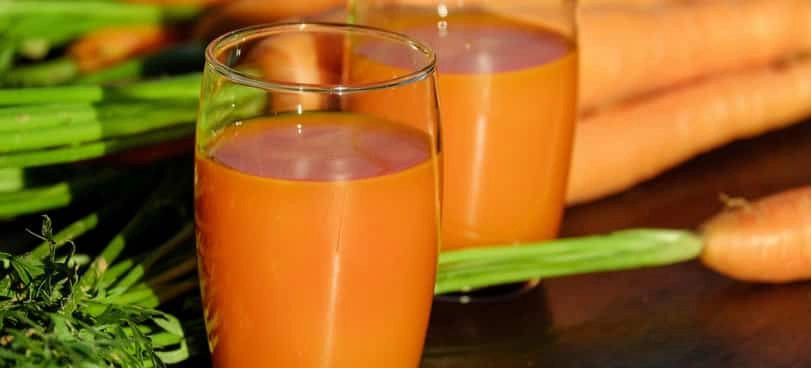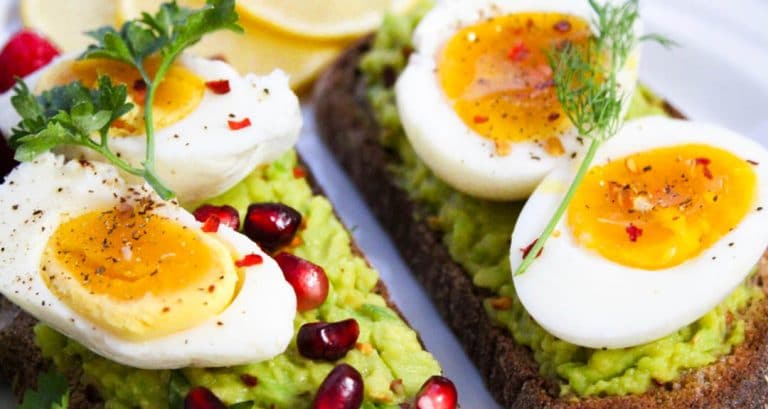Skipping Meals & Other Weight Loss Traps to Avoid
Summer is finally here! As temperatures rise and clouds thin, our collective focus on weight increases indefinitely.
So, in the interest of staying healthy and loving our bodies this summer, here are three summer weight-loss traps to avoid, plus what to do instead!
THREE Weight Loss Traps to Avoid
Do you remember when your grandma used to tell you, “if it’s too good to be true, it probably is”? She probably wasn’t talking about weight loss, but the lesson holds true for health and weight loss as well.
Fast, “easy” fixes simply don’t work.
Patience isn’t easy for anyone, but it’s still the only way to achieve long-term, healthy weight loss results. So, here’s a list of three “quick fix” weight loss traps to avoid this summer!
1) Skipping Meals
When we want to drop pounds fast, it’s a common strategy to skip a meal or two each day to decrease calories. While most people opt to skip breakfast, skipping lunch or dinner is equally problematic.
Skipping meals isn’t a good choice for several reasons because:
- Excessive hunger leads to binging later on
- It’s hard to make good choices when you’re too hungry
- Long periods of fasting slow overall metabolism
- Some people experience low blood sugar
For all of these reasons, skipping meals often inadvertently leads to eating more instead of less.
Thankfully, in recent years, hospitals and public health campaigns have very successfully lobbied against skipping breakfast (and other meals).
These days you’re probably not too surprised about any of those problems listed above!
Instead of skipping meals altogether, eat something light to tide you over until the next meal or snack. Focus on protein, fiber, and liquid to fill you up with fewer calories!
2) Extreme Diets

Another summer weight loss trap is extreme dieting. Widely-popular “fad diets” involve dramatic methods that promise fast results.
Remember what we said earlier about avoiding weight loss methods that sound “too good to be true”? Drastic, quick-fix diets fall straight into that category.
For example, right now, we’re hearing a lot about the Military Diet. The Military Diet (a.k.a. aka the army diet, navy diet, or ice cream diet) entails following a strict diet plan for three days and then eating a healthy variety of foods that sum to less than 1500 calories for four more days.
The diet’s creators promise upwards of ten pounds of weight loss per week and say the plan can be repeated as needed as long as you take a four-day break in between.
While it’s undoubtedly true that most people will lose weight by eating <1500 calories per day for a week, there’s no evidence that the Military Diet has any special weight loss power beyond caloric restriction.
Problematically, it does nothing to teach followers about truly healthy eating habits and isn’t sustainable.
Other extreme diets that we’ve heard a lot about recently include:
- The apple diet
- Juice cleanses
- Liquid-only diets
All of these diets have the same appeal, and the same problem: they all promise quick results, but aren’t sustainable lifestyle habits.
Instead, focus on developing healthy eating habits like portion control, intuitive eating, and balance to maximize your nutrition and long-term weight loss results.
3) Dressing in Plastic
Have you seen people running in garments that look like plastic sweatshirts? Or do you wrap your stomach in Saran wrap before hitting the gym?
Some athletes (like wrestlers) have techniques to get rid of water weight year-round. However, the popularity of recreational exercisers in sweat suits or plastic wrap seems to skyrocket each time the temperatures soar. Don’t fall into this trap!
The concept behind covering yourself in plastic while working out – whether it’s a sweat suit or Saran wrap – is to increase sweating.
Some people have claimed that wrapping a specific area in plastic reduces that area. However, science shows that the only real effect of wrapping yourself in plastic is an increased loss of water weight.
Now you may be thinking, “Hey, that’s great! I can lose more water weight just by wearing plastic!” The problem is, this increased weight loss is only temporary. You aren’t losing fat, you’re just burning through your water reserves faster.
After all, there’s no long-term benefit associated with the undeniable discomfort of wrapping yourself up in plastic!
What to Do Instead: Setting Healthy Weight Loss Goals

Now that we’ve talked about what NOT to do to shed pounds this summer let’s discuss what you should do instead!
Basically, it all comes down to developing healthy, sustainable habits. These behaviors should span across your life to include healthy dietary choices, regular physical activity, and productive stress management.
None of these are glamorous changes, nor will they result in dramatic rapid weight loss, but they will help you lose weight and keep it off for years to come.
Healthy weight loss really does take lots of time and commitment, even with the help of phentermine!
Setting Weight Loss Goals for Summer
Have you noticed how many gyms, nutritionists, and weight loss companies offer 90-day trials or challenges?
Even though Google may tell you that it only takes 21 or 28 days to change a habit, science shows this number is considerably higher.
In fact, according to research shows that it takes an average of 66 days (just over two months) for people to form a new, healthy habit.
Unsurprisingly, the same study also shows that the amount of time it takes to establish automaticity in a new behavior varies a lot depending on the person and the activity.
In fact, the time it took subjects in this study to adopt new habits ranged all the way from 18 to 254 days!
Still, whether you fall on the upper or lower end of that range, summer is a great time to set some healthy goals! The 2-3 month period gives you just the right amount of time to achieve a couple of reasonable objectives.
Think about trying to change little things like:
- Drink 8-10 glasses of water per day
- Walk at least 10,000 steps most days of the week
- Eat at least 3 servings of vegetables a day
- Replace white grains (e.g. white bread, white rice, white pasta, etc.) with whole grains (e.g. whole wheat bread/pasta, brown rice, quinoa, etc.)
8 Healthy Habits & Weight Loss Goal Ideas

Looking for some inspiration to set your summer weight loss goals? These healthy behaviors will help you shed the weight healthfully and keep it off long-term!
Eat Protein at Breakfast
Eating protein at breakfast is one of the most tried and true methods to lose weight. Eating a substantial, protein-rich breakfast sets your day up for success by:
- Preventing spikes (and valleys) in blood sugar
- Promoting satiety
- Giving you the fuel you need to tackle your day
When you’re losing weight, this early punch of protein is extra important! Dietary protein helps maintain and repair muscle mass, which is easily lost during dramatic weight loss.
So, to keep your muscles healthy and strong, make sure to eat adequate protein throughout the day.
The Latest on Eggs
Love eggs, but don’t eat them very often because you’re worried about heart health or cholesterol.
Good news: new research shows that eating an egg a day may actually decrease the risk of cardiovascular disease!
These findings are in-line with other research that indicates dietary cholesterol intake has little impact on serum (blood) cholesterol. So, if you enjoy eggs don’t be worried about grabbing one at breakfast to up your protein intake!
Drink Water
Drinking water is another surefire way to up your odds of weight loss success!
Aim for at least 8-10 glasses of calorie-free, caffeine-free hydration per day. Increase if it’s hot outside (hello summer!) or if your body is bigger, whether taller or heavier.
If you work out, it’s also important to replace any fluids lost through sweating. Hydrating beverages include water, unsweetened decaf tea, and infusions (flavored water).
Skim milk or plant milks are also good options to hydrate, but keep in mind that these beverages contain calories in addition to the much-needed hydration.
Eat Spicy Foods
Did you know that eating spicy food can actually help you lose weight?
Capsaicin, the chemical that makes peppers spicy, has been shown to curb appetite and boost metabolism.
If you can handle the burn, adding a little cayenne pepper to your meal may help you eat less of the actual meal, as well as burn off more calories in the hours following!
You know that flush and heat wave you get when you eat something spicy? Your metabolism has to burn extra calories to bring body temperature back down to normal, so in this way, spicy food temporarily boosts metabolic rate.
One note: these effects are most pronounced in people who don’t eat much spicy food so this trick may lose effectiveness over time.
Don’t like (or can’t handle) spicy food? Don’t worry! The above research showed that it worked to either eat cayenne pepper or take it as a supplement.
Focus on Fiber
Fiber is your friend during your weight loss journey. Much like protein, fiber helps regulate your blood sugar and keep you full for longer.
Current recommendations suggest eating 25-30 grams of fiber per day. Unfortunately, the average American only gets about 15 grams each day.
Boost your fiber intake by eating plenty of:
- Whole grains (oats, popcorn, brown rice, barley, bran cereal, etc.)
- Fruits with skin (apples, pears, berries, etc.)
- Beans (black, pinto, garbanzo, etc.)
- Vegetables (especially raw vegetables)
In addition to fiber, the foods on this list also provide lots of other nutrients that benefit your weight loss journey. Plus, fruits and veggies are a great snack for any time of day since they’re high in fiber and low in calories!
Still, make sure to increase your fiber gradually and drink plenty of water (especially if you’re not eating very much fiber now)! Eating too much fiber when you’re not getting enough fluids can contribute to constipation and general GI discomfort.
Use Portion Control
I’m sure you’ve heard this a million times before, but it’s true: portion control is critically important for weight loss and maintenance. It does make sense, though.
If you control the number of calories you eat, it’s much easier to maintain proper energy balance than trying to burn them off later.
Here are a couple of tips to make portion control easier:
1) Measure portions. When you’re just starting, take an extra minute to measure portions and make sure you’re actually eating just one portion of your favorite foods. The research shows that even experts are terrible at “eye-balling” portion sizes!
2) Track intake. Use an app like MyFitnessPal or LoseIt to track your activity and intake. This helps you establish how much you should be eating on a given day, at least until you get familiar enough with portion control to leave the tracking behind.
3) Use small, blue plates. Studies have shown that eating off smaller plates makes us feel like we’re eating more, even if it’s really the same amount.
So, use the appetizer plates for the main course to facilitate everyday portion control! Eating off blue plates also helps you eat less. This is because the blue forms a sharp contrast with the colors in your food, which makes you less likely to overeat!
Exercise Regularly
Practice makes perfect, and consistency breeds results. Breaking a sweat most days of the week will not only help you lose weight and get fit but also promote life-long health.
Set your goal to do 75 minutes of vigorous aerobic activity (e.g. running or HIIT), or 150 minutes of moderate activity (e.g. walking or cycling), per week.
Most experts recommend even more exercise if you’re trying to lose weight. So, if you can, try to get a little activity in on most days of the week!
Fit Fitness into Everyday Activities
Last but not least, fitting fitness into everyday activities is a great way to increase fitness (and calorie burn!) without ever hitting the gym.
Make an effort to incorporate little changes like:
- Taking the stairs
- Parking farther away
- Carrying a basket at the store (instead of pushing a cart)
- Doing calf raises while you brush your teeth
- Hiding the TV remote (so you have to get up and walk to change the channel)
- Running with your kids at the park instead of just watching them play
It’s amazing how much the activity adds up simply by integrating tiny changes into your everyday routine!
For your best chance of success, PhenQ—which gives you energy, reduces cravings, and curbs your appetite—will give you everything you need for a happy, healthy weight loss journey!
What do you think? Do you feel pressured to lose more weight in the summer? How do you shed the pounds? Share with us in the comments section below!






